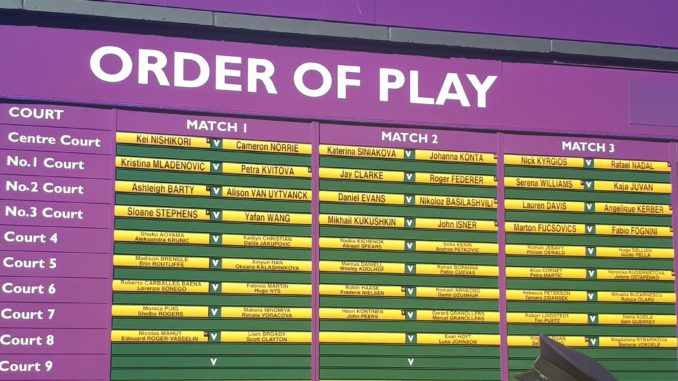
Tennis, one of the world’s most loved and watched sports, presents a unique blend of agility, power, and skill.
The pinnacle of this sport is, undoubtedly, the four Grand Slam tournaments: the Australian Open, the French Open, Wimbledon, and the US Open.
Held annually, these tournaments chart a global trajectory from the scorching summer of Melbourne to the timeless clay courts of Paris, through the verdant lawns of London, and finally to the vibrant buzz of New York City.
Each Grand Slam tournament carries its own legacy, culture, and challenges. They offer a unique tapestry of sights, sounds, and experiences that traverse the globe, making tennis a truly global sport. It is also noteworthy to mention that the betting world is an integral part of these Grand Slam tournaments.
Bookies like comeon.com offer a thrilling chance to engage in these tournaments beyond spectating, adding another layer of suspense and excitement to the proceedings.
Australian Open: Melbourne’s Fiery Start
Kicking off the Grand Slam season is the Australian Open, usually held in January in the sun-bathed city of Melbourne. A relatively newer addition to the Grand Slam roster, it was inaugurated in 1905 and played on grass until 1987.
In 1988, the tournament moved to its current location, Melbourne Park, where it features Plexicushion hard courts that are famous for their high bounce and medium-fast speed.
The “Happy Slam,” as it is often called due to its warm and friendly atmosphere, presents unique challenges. Players must endure the harsh Australian summer heat, which often soars above 40 degrees Celsius. Such conditions test not only the physical endurance of players but also their mental grit.
French Open: Parisian Clay Court Challenge
In stark contrast to Melbourne’s hard courts, the French Open features the slow clay courts of Paris’s Roland Garros.
This tournament, inaugurated in 1891, is infamous for the formidable challenges it poses. The slow clay surface results in longer rallies, necessitating not only physical stamina but also strategic game-play. It’s here where patience, precision, and perseverance often decide the victor.
Wimbledon: London’s Elegant Classic
Nothing screams tradition in tennis quite like Wimbledon.
Hosted at the All England Club in London since 1877, this is the oldest and arguably the most prestigious of the four Grand Slam tournaments. Wimbledon is unique for its meticulously maintained grass courts, white dress code, and strict adherence to tradition, including a rest day on the middle Sunday of the tournament.
Playing on grass, a significantly faster surface than clay or hard courts, is no mean feat. It necessitates quick reflexes, sharp serves, and a strong net game. Rain delays, a common occurrence in London’s unpredictable summer, add to the tournament’s unpredictability.
US Open: New York’s Grand Finale
As the tennis caravan moves across the Atlantic, it concludes its Grand Slam journey in New York with the US Open. The tournament, held at the USTA Billie Jean King National Tennis Center since 1881, features hard courts similar to the Australian Open but with a slightly faster surface.
The US Open, often affected by the late summer heat and humidity of New York, demands from its players an exquisite balance of power, speed, and endurance. The tournament is famous for its energetic night sessions, often filled with dramatic comebacks and thrilling showdowns.
From the hard courts of Melbourne to the clay courts of Paris, the grass courts of London, and back to hard courts in New York, the Grand Slam tournaments represent the diversity, unity, and sheer thrill that tennis brings to the world.